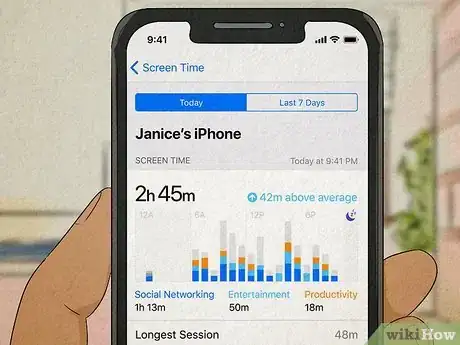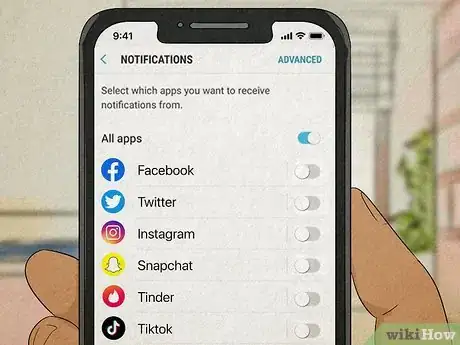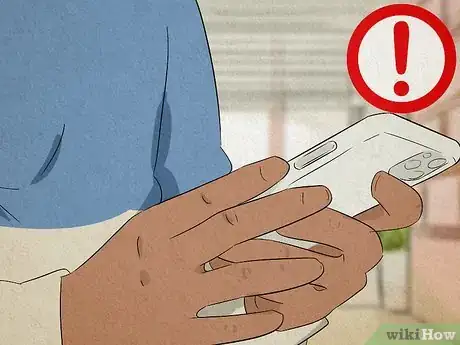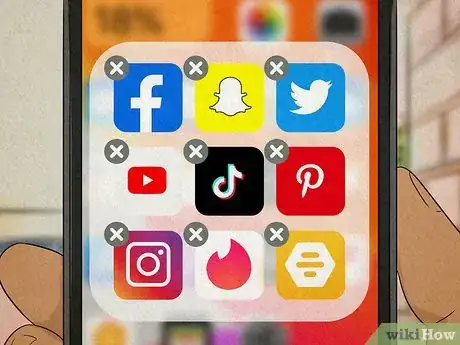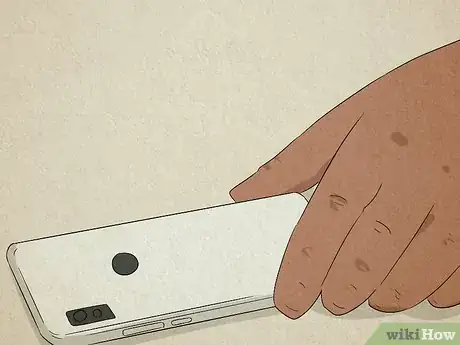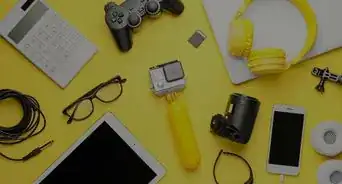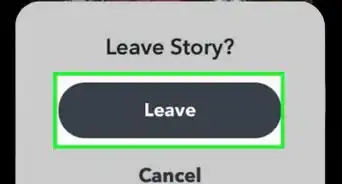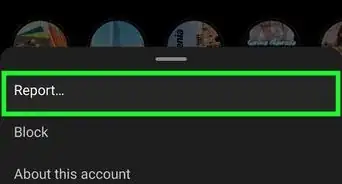This article was co-authored by Ben Whitehair. Ben Whitehair is a Social Media Expert and the Chief Operating Officer (COO) of TSMA Consulting. With over a decade of experience in the social media space, he specializes in leveraging social media for business and building relationships. He also focuses on social media’s impact on the entertainment industry. Ben graduated summa cum laude from The University of Colorado at Boulder with BAs in Theatre and Political Science as well as a Leadership Certificate. In addition to his work as CIO, Ben is a certified business and mindset coach and National Board Member of SAG-AFTRA. He is also a successful entrepreneur as the Co-Founder of Working.Actor, the premier business academy and coaching community for actors.
This article has been viewed 72,864 times.
Social media and the internet are powerful tools that are an important part of our everyday lives. We use them to learn, communicate, work, and more. But, sometimes using social media and the internet too much can overwhelm us and negatively affect other aspects of our lives. If you’re feeling like you’ve been spending a bit too much time online these days, try some of the tips on this list to cut down on your social media and internet use.
Steps
Expert Q&A
-
QuestionHow can I limit social media use without completely cutting it out?
 Ben WhitehairBen Whitehair is a Social Media Expert and the Chief Operating Officer (COO) of TSMA Consulting. With over a decade of experience in the social media space, he specializes in leveraging social media for business and building relationships. He also focuses on social media’s impact on the entertainment industry. Ben graduated summa cum laude from The University of Colorado at Boulder with BAs in Theatre and Political Science as well as a Leadership Certificate. In addition to his work as CIO, Ben is a certified business and mindset coach and National Board Member of SAG-AFTRA. He is also a successful entrepreneur as the Co-Founder of Working.Actor, the premier business academy and coaching community for actors.
Ben WhitehairBen Whitehair is a Social Media Expert and the Chief Operating Officer (COO) of TSMA Consulting. With over a decade of experience in the social media space, he specializes in leveraging social media for business and building relationships. He also focuses on social media’s impact on the entertainment industry. Ben graduated summa cum laude from The University of Colorado at Boulder with BAs in Theatre and Political Science as well as a Leadership Certificate. In addition to his work as CIO, Ben is a certified business and mindset coach and National Board Member of SAG-AFTRA. He is also a successful entrepreneur as the Co-Founder of Working.Actor, the premier business academy and coaching community for actors.
Social Media Expert You could try the old school technique of setting a timer. Let yourself have 20 minutes or so at the end of the day to relax and look through social media. Once the time goes off, you stop. Another thing you can do is set aside a specific timeframe during the day to use social media, like from 12 to 12:30 every day. That would be your social media time to catch up with everyone and engage with the community.
You could try the old school technique of setting a timer. Let yourself have 20 minutes or so at the end of the day to relax and look through social media. Once the time goes off, you stop. Another thing you can do is set aside a specific timeframe during the day to use social media, like from 12 to 12:30 every day. That would be your social media time to catch up with everyone and engage with the community. -
QuestionHow does one get off social media entirely?
 Community AnswerDelete your account. That is the best way to get off social media entirely. That way, you can't message or post new things, you have nothing to return to and look at and you won't be tempted to play with the settings and updates. It will take a lot of willpower to begin with but distract yourself with hobbies and activities that you can do at home and go out a lot as well, such as for walks, to visit people or to do activities like sports, movies and night classes.
Community AnswerDelete your account. That is the best way to get off social media entirely. That way, you can't message or post new things, you have nothing to return to and look at and you won't be tempted to play with the settings and updates. It will take a lot of willpower to begin with but distract yourself with hobbies and activities that you can do at home and go out a lot as well, such as for walks, to visit people or to do activities like sports, movies and night classes. -
QuestionIs it mandatory that I limit social media? I'm dealing with self-isolation due to the COVID-19 pandemic and social media helps me feel less isolated.
 ButterflyCommunity AnswerNo, it's not mandatory but highly recommended. Due to the COVID-19 pandemic, many people are dependent on social media for keeping in touch with friends and family and it's normal that social media helps you feel less isolated. But you shouldn't exceed your limits on social media, either. It is generally advised to set your boundaries and limits on social media even during the pandemic because too much of social media means too much of screen-time; which is not good for the eyes.
ButterflyCommunity AnswerNo, it's not mandatory but highly recommended. Due to the COVID-19 pandemic, many people are dependent on social media for keeping in touch with friends and family and it's normal that social media helps you feel less isolated. But you shouldn't exceed your limits on social media, either. It is generally advised to set your boundaries and limits on social media even during the pandemic because too much of social media means too much of screen-time; which is not good for the eyes.
References
- ↑ https://www.pcmag.com/how-to/5-ways-to-cut-back-on-social-media
- ↑ https://www.inc.com/jeremy-goldman/6-apps-to-stop-your-smartphone-addiction.html
- ↑ https://www.helpguide.org/articles/mental-health/social-media-and-mental-health.htm
- ↑ https://www.pcmag.com/how-to/5-ways-to-cut-back-on-social-media
- ↑ https://www.helpguide.org/articles/mental-health/social-media-and-mental-health.htm
- ↑ https://www.theguardian.com/commentisfree/2014/jan/09/5-ways-internet-use-web-addiction
- ↑ https://theconversation.com/how-parents-and-teens-can-reduce-the-impact-of-social-media-on-youth-well-being-87619
- ↑ https://www.helpguide.org/articles/mental-health/social-media-and-mental-health.htm
- ↑ https://www.helpguide.org/articles/mental-health/social-media-and-mental-health.htm
